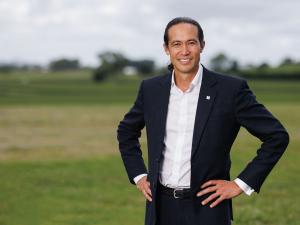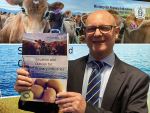The most important asset on a farm is the farmer; a healthy farmer means a healthy business.
Therefore, the joint initiative by rural insurer FMG and the Mental Health Foundation (MHF) to focus on the wellbeing of farmers is commendable.
No one will argue that dairy farmers are under pressure; the low payout is straining cashflow on farms.
The Farmstrong initiative launched last week emphasises to farmers that they need to put themselves and their wellbeing in their business plans.
Farmstrong is based on extensive research of the wellbeing of farmers and farming communities. This research identified wellbeing and quality of life as being top of mind for farmers who also said they wanted more information on how to look after themselves and their families.
At least 400 farmers were surveyed, online and in face-to-face interviews. Further analysis and scientific findings on wellbeing then led to the creation of Farmstrong.
Nearly half the respondents to the survey wanted advice on how to achieve better work-life balance and over a third wanted to know more about managing tiredness and fatigue.
The main source of information will be hosted on the Farmstrong website - www.farmstrong.co.nz.
The website contains practical tips and strategies proven scientifically to improve mental health and wellbeing. These include healthy thinking strategies, physical activity, good nutrition, staying connected with friends, getting a good night’s sleep and spending time away from the farm. Research shows that action in these areas helps build resilient people better able cope with the pressures of farming.
Being resilient doesn’t mean the hard knocks will go away. But it does mean people are better placed to deal with these hard knocks when they come.
Behaviour change in which farmers come to see themselves as the most important asset on the farm will take time. To be successful, this way of thinking needs to be farmer-led and supported by the rural sector.
We urge farmers to visit the new website. Farmstrong can help improve the lives of anyone living in a rural community, and in turn help make the agriculture sector a more attractive place to work.
Research shows that healthy thinking and healthy living hold the key to increasing productivity, wherever you work.
Sleep, diet and exercise, for example, have a huge bearing on a farmer’s ability to manage a farm successfully. When people are not functioning well, decision-making becomes difficult, relationships deteriorate and productivity suffers.
Farmers need to realise this too.











